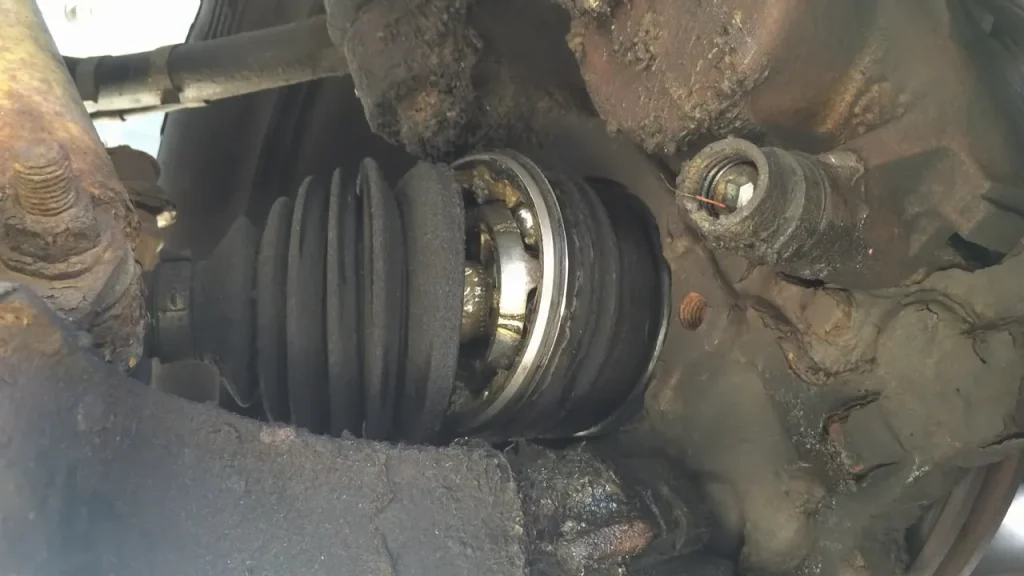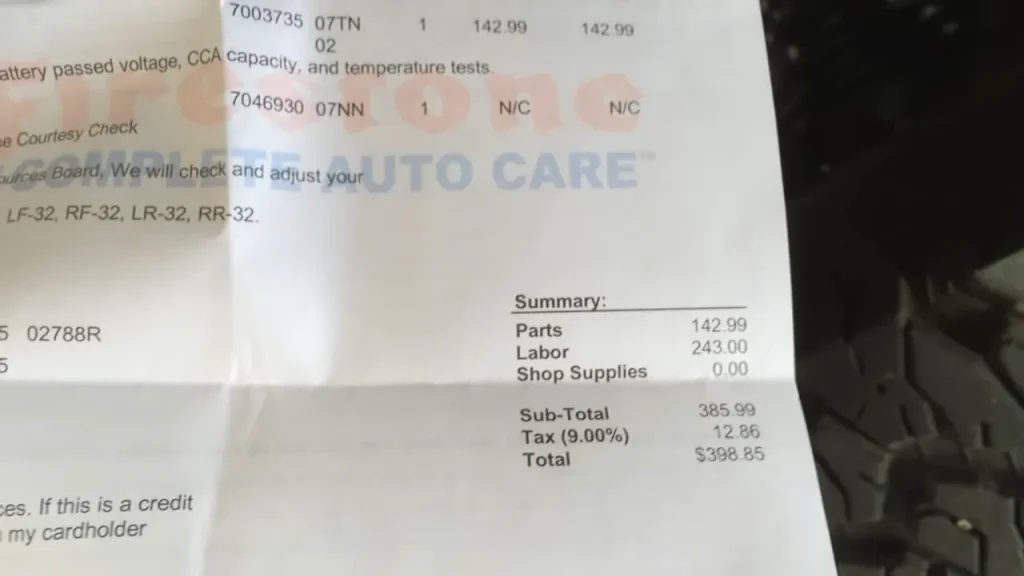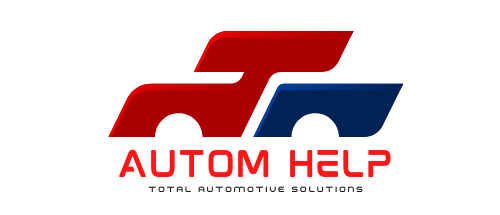How Much Should It Cost to Replace a CV Axle? [2024]
Typically, the replacement of a single axle incurs an average cost ranging from $300 to $1,500. The total expense is contingent on factors such as the vehicle type and the hours of labor involved. Parts contribute to this cost, with a price range of $760 to $1,030, and labor charges fall within the range of $170.00 to $180.00.
Factors Influencing the Cost of Replacing a CV Axle
1. Year, Make, and Model
The specific details of the vehicle, including its year of manufacture, make, and model, play a significant role in determining the cost of replacing a CV axle. Different vehicle types and brands may require specialized parts, impacting both the availability and pricing of replacement components. The intricacies of the axle system can vary across car models, influencing the overall cost of the replacement.
2. Difficulty of the Job
The complexity of replacing a CV axle can significantly affect the overall cost of the job. Some vehicles have CV axles that are relatively easier to access and replace, making the labor hours involved less extensive.
On the other hand, certain makes and models may have intricate designs or components that require more time and expertise, leading to higher labor costs. Additionally, factors such as the location of the axle and its accessibility within the vehicle’s suspension system can impact the difficulty of the job.
The more intricate the replacement process, the more likely it is to incur higher labor charges, contributing to an increased overall cost for replacing the CV axle.
3. Experience of the Mechanic
The expertise and experience of the mechanic performing the CV axle replacement are crucial factors influencing the overall cost of the job. A highly skilled and experienced mechanic is likely to work more efficiently and accurately, potentially reducing labor hours.
While an experienced professional may charge a higher hourly rate, their ability to diagnose issues accurately and perform the replacement with precision can lead to cost savings in the long run. Inexperienced or less skilled mechanics may take longer to complete the job, resulting in higher labor costs. Therefore, the level of expertise of the mechanic plays a significant role in determining the final expense of replacing a CV axle.
Symptoms of a Bad CV Axle
1. Noise while driving
One of the primary indicators of a failing CV axle is the presence of unusual noises while driving. A damaged or worn-out CV joint may produce clicking, popping, or clunking sounds, especially when making turns.
The noise is often more pronounced during sharp turns or when maneuvering at low speeds. This auditory signal is a clear indication that the CV axle joint may be compromised, and it is advisable to have the vehicle inspected by a mechanic to prevent further damage and ensure safe driving conditions.
2. Vibration while driving
Another common symptom of a bad CV axle is the occurrence of vibrations while driving. When a CV joint begins to wear out or fail, it can result in an imbalanced axle, causing vibrations that are felt throughout the vehicle.
These vibrations may be noticeable in the steering wheel or even in the entire chassis, especially during acceleration. If you experience unusual vibrations while driving, particularly during acceleration, it is essential to have the CV axle inspected promptly. Ignoring this symptom can lead to more severe damage and potential safety hazards on the road.
3. Difficulty turning
Difficulty turning, especially during sharp or tight maneuvers, can be a significant symptom of a failing CV axle. When the CV joint is damaged or worn, it affects the axle’s flexibility, making it challenging for the vehicle to navigate smoothly around corners. Drivers may notice increased resistance or a sensation of binding when attempting to turn.
If you encounter difficulty in steering or experience a stiff response when making turns, it is advisable to have the CV axle inspected by a qualified mechanic. Addressing this issue promptly can prevent further damage and maintain the vehicle’s maneuverability and safety.
How much is labor to replace a CV axle?
The cost of labor to replace a CV axle can vary depending on several factors, including the vehicle make and model, the mechanic’s hourly labor rate, and the geographic location. On average, the labor cost for replacing a single CV axle ranges from $80 to $200 per hour. The actual time required for the replacement depends on the complexity of the job, the accessibility of the axle, and the experience of the mechanic.
To get a more accurate estimate, it’s recommended to obtain quotes from local auto repair shops or mechanics. They can provide a breakdown of the labor costs and any additional fees associated with the CV axle replacement for your specific vehicle. Keep in mind that the cost of parts, such as the CV axle itself, will be separate from the labor charges.

Is it OK to drive with a bad CV axle?
Driving with a bad CV axle is not advisable and poses significant risks to both the vehicle and the safety of the occupants. A damaged or failing CV axle can lead to a range of issues, including loss of control during turns, compromised handling, and potential accidents. Continued driving with a bad CV axle can cause additional damage to the wheels, tires, and suspension system, leading to more extensive and costly repairs.
Moreover, if a CV axle fails completely, it can result in the wheel locking up, creating a hazardous situation on the road. Due to the potential safety hazards and the risk of further damage to the vehicle, it is crucial to address and repair a bad CV axle promptly. If you suspect issues with your CV axle, it is recommended to have your vehicle inspected by a qualified mechanic and take necessary measures to ensure its safe operation.
How many hours does it take to replace a CV axle?
The time it takes to replace a CV axle can vary based on several factors, including the make and model of the vehicle, the specific design of the suspension system, and the experience of the mechanic. On average, a straightforward CV axle replacement may take around 1 to 3 hours.
However, more complex installations or those involving additional issues, such as rusted or seized components, can extend the labor time. It’s essential to consider that this estimate primarily covers the physical replacement of the CV axle and does not include diagnostic time or potential additional repairs.
For accurate information on the time required for your specific vehicle, it’s recommended to consult with a qualified mechanic who can provide a more precise estimate based on the unique characteristics of your car or truck.

What are the symptoms of a CV axle going out?
A failing or worn-out CV (constant velocity) axle can exhibit various symptoms, indicating potential issues with this crucial component of a vehicle’s drivetrain. Here are common symptoms of a CV axle going out:
- Clicking or Popping Noises: A clicking or popping sound, especially when turning at low speeds, can be a sign of a damaged CV joint. This noise typically occurs as the joint loses its lubrication or wears down.
- Vibration During Acceleration: Experiencing vibrations, especially during acceleration, may indicate an imbalanced or failing CV axle. The vibrations can be felt in the steering wheel or throughout the vehicle.
- Grease on the Inside Edge of the Tire: If you observe grease splattered on the inside edge of the tire, it may be a result of a torn CV boot. A torn boot allows grease to leak out and contaminants to enter, leading to CV joint damage.
- Axle Seal Leakage: A leaking axle seal, noticeable by the presence of oil or grease on the transmission or wheel, may indicate a failing CV axle. This can result in a loss of lubrication and increased friction, leading to wear.
- Difficulty Turning or Maneuvering: A worn-out CV axle can cause difficulty in turning, especially during sharp maneuvers. This may manifest as a stiff or binding sensation in the steering, making it challenging to navigate smoothly.
- Clunking Sounds During Deceleration: When slowing down or decelerating, a damaged CV joint may produce clunking or knocking sounds. This is often indicative of excessive play or wear within the joint.
- Uneven Tire Wear: Uneven tire wear, particularly on the inner or outer edges, can result from a misaligned or failing CV axle. It’s a visual indicator that the axle may not be transmitting power evenly to the wheels.
FAQ:
How much does it typically cost to replace a CV axle?
The cost to replace a CV axle can vary widely, ranging from $100 to $400 or more, depending on factors such as the vehicle make and model, labor rates in your area, and whether you choose OEM or aftermarket parts.
Does the cost of replacing a CV axle include both parts and labor?
Yes, the total cost typically includes both the cost of the new CV axle and the labor charges for the installation.
Are there differences in cost between front and rear CV axle replacements?
Front and rear CV axle replacements may have different costs, with front axle replacements often being more common and potentially less expensive than rear axle replacements.
Can I save money by purchasing my own CV axle and having a mechanic install it?
While you can supply your own parts, some mechanics prefer using specific brands or may charge higher labor rates for installations involving customer-supplied parts. It’s recommended to discuss this with your mechanic beforehand.
Does the type of vehicle impact the cost of CV axle replacement?
Yes, the make and model of your vehicle influence the cost. Luxury or imported vehicles may have higher parts costs, affecting the overall replacement expense.
Are there additional costs associated with CV axle replacement, such as alignment or balancing?
Additional costs, such as wheel alignment or balancing, may be incurred depending on the specific requirements of your vehicle and the recommendations of your mechanic.
Can I drive with a damaged CV axle to delay replacement and reduce costs?
Driving with a damaged CV axle is not recommended, as it can lead to more extensive damage and increased repair costs. Prompt replacement is advisable.
Are there differences in costs between OEM and aftermarket CV axles?
Yes, OEM (Original Equipment Manufacturer) parts may be more expensive than aftermarket alternatives. The choice depends on your preference and budget.
Do warranty options impact the overall cost of CV axle replacement?
Some mechanics offer warranties on parts and labor, which may affect the overall cost. It’s advisable to inquire about warranty options when discussing the replacement.
How can I get an accurate estimate for CV axle replacement for my specific vehicle?
To get an accurate estimate, consult with local auto repair shops or mechanics. They can provide a detailed breakdown of costs based on your vehicle’s make and model, ensuring a more precise estimate.
